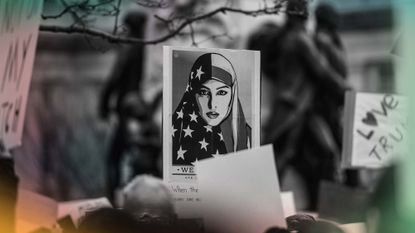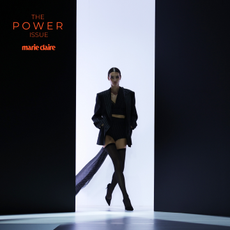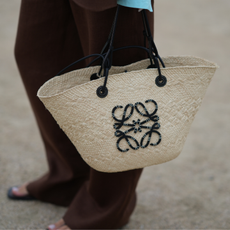Your comprehensive guide to what Donald Trump's US Travel Ban means
Everything you need to know about the US President's executive order, that basically serves as a Muslim travel ban, as information still reels in


Everything you need to know about the US President's executive order, that basically serves as a Muslim travel ban, as information still reels in
Reporting on this story as it unfolds, today, Britain is still wondering whether Prime Minister Theresa May will follow through with President Donald Trump's visit, following a nationwide protest on Monday night that saw up to 10,000 fill up the streets of London.
Also in headlines today, everyone is talking about how US attorney general Sally Yates was sacked after defying the White House by ordering government lawyers to stop defending the immigration ban and by refusing to enforce it. Foreign Secretary Boris Johnson defended the US President, calling him a 'friend and partner' of the UK stating that it is wrong to 'demonise' him for this controversial ban.
And, in another rare occurrence, former US President Barack Obama has come out to criticise his successor by saying: 'Citizens exercising their Constitutional rights to assemble, organise and have their voices heard by their elected officials is exactly what we expect to see when American values are at stake.'
On January 30th, we wrote...
What is the US Travel Ban?
His order means that refugees will be unable to enter the country for 120 days and it also disallows immigrants born in seven nations from flying to America over the next 90 days, too.
When it was first announced, this was believed to affect legal US residents from re-entry into the country but it's since been confirmed that green card holders will be let in.
Marie Claire Newsletter
Celebrity news, beauty, fashion advice, and fascinating features, delivered straight to your inbox!
Who is being affected by the rule?
The seven predominantly Muslim nations are Iran, Iraq, Syria, Sudan, Libya, Yemen and Somalia. This is vetting gone to the absolute extreme, and celebrities at last night's SAG Awards got political, too, voicing their disgust on the matter.
How is Britain reacting to Trump's executive order?
A petition against Donald Trump's UK visit has also surpassed the one million signature mark, as well as having support from various MPs, and the London Mayor Sadiq Khan who has called the ban 'shameful and cruel.' Boris Johnson has stated that British passport holders will not be affected but his reassurance felt vague.
How this will affect immigration laws
While the American president and his team are deciding on the immigration strictures they want to implement, the entire US refugee admissions system has been suspended for the next four months. Back in 2016, the US let in 12,486 Syrian refugees which is a very small amount when compared with the 300,000 that Germany accepted the same year, or the 2.7 million refugees Turkey has allowed.
At a time when we are experiencing the worst refugee crisis since the end of The Second World War, the worry, as expressed by non-profit organisation Amnesty International, is that this temporary ban will become permanent, and will influence other countries into doing the same.
And, after last night's open fire attack in a mosque in Quebec, Canada, which Prime Minister Justin Trudeau called 'a terrorist attack on Muslims,' people are fearing that hate crimes will be on the rise.
Celebrities like Brie Larson have been quick to point out that America's guns have killed more US citizens than terrorism:
The immediate consequences of this vague order have seen ports and airports in America in complete disarray with people being detained, barred from planes or sent elsewhere. Immigration law advisors are warning people to not leave the US, in case they get banned from re-entering and being separated from their families.
How will the Muslim Ban affect British Citizens?
Olympic runner Sir Mo Farah, who was born in Somalia but has lived in Oregon, America, for the past six years was worried he would be separated from his family but the Foreign Office has since advised that British travellers would only be banned from entering the US if they were coming directly from one of the seven countries listed and are a dual-citizen with one of those countries. So, for example, if Sir Mo Farah was flying into the US from Somalia, then he would be banned from entering, but as he will be flying from the UK, he will be let in.
So, if you are British and are travelling to the US from anywhere other than one of the seven banned countries, this executive order will not apply to you - regardless of your place of birth or nationality.
And, if you do not share citizenship from any of the countries listed, then this order will also not apply to you, even if you are coming from one of the listed countries.
If you are a UK national who happens to be travelling from one of those countries to the US, then the order does not apply to you – even if you were born in one of those countries.
With a demonstration set to take place outside Downing Street today, the world is waiting to see how this will all develop.
-
 This overlooked skincare step could help you tackle dehydration and more in seconds
This overlooked skincare step could help you tackle dehydration and more in secondsQuick and easy spritzes for an instant hit of hydration
By Fiona Embleton
-
 Your ultimate power dressing hit list for 2024
Your ultimate power dressing hit list for 2024Our step by step guide
By Sofia Piza
-
 These are the 16 cult designer pieces to invest in this season
These are the 16 cult designer pieces to invest in this seasonChic girl summer, anyone?
By Sofia Piza